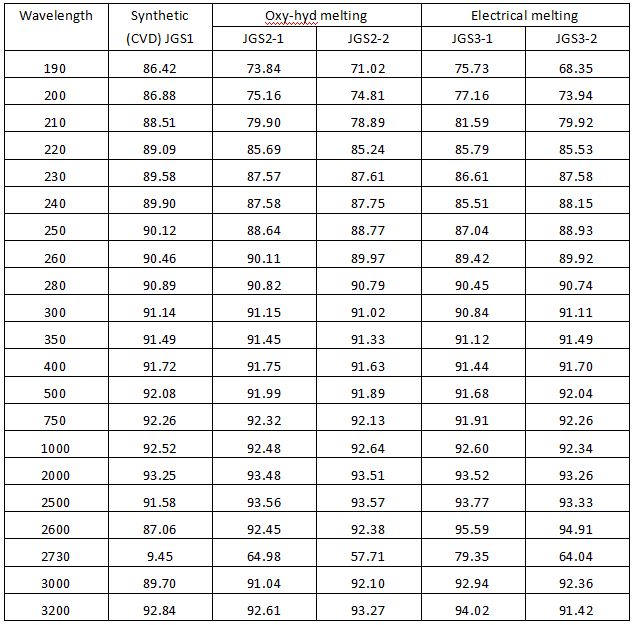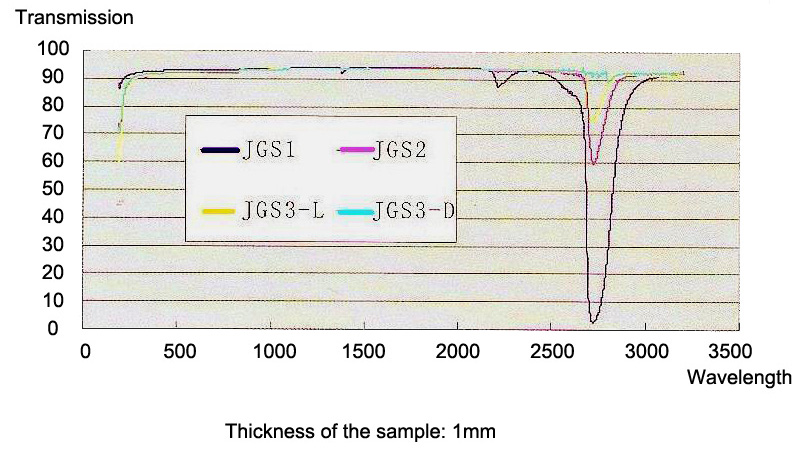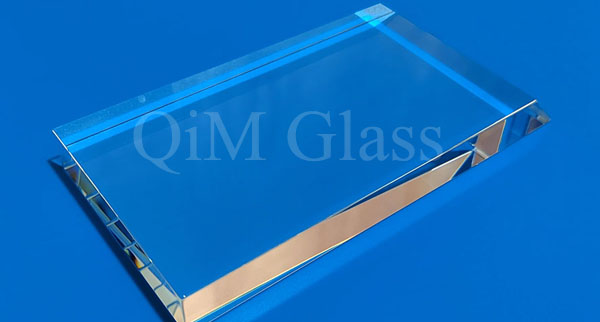The outstanding advantage of silica glass lies in its unique comprehensive properties that other materials do not have, including very low thermal conductivity, excellent thermal vibration resistance, very high deformation and softening temperatures, very low thermal conductivity, very low dielectric loss, and good optical transmittance over a wide spectral range from ultraviolet to infrared.
The mechanical properties of quartz glass
Density: 2.2g/cm3
Compressive strength: 1100Mpa
Bending strength: 67Mpa
Tensile strength: 48Mpa
Poisson's ratio: 0.14-0.17
Young's modulus: 72000Mpa
Stiffness modulus: 31000Mpa
Mohs hardness: 5.5-6.5
Thermal properties of quartz glass
Deformation point: 1120℃
Softening point: 1680℃
Annealing point: 1210℃
Specific heat (20-350℃): 670J/kg.℃
Thermal conductivity (20℃): 1.4W/m.℃
Thermal expansion coefficient: 5.5x10-7cm/cm.℃
Hot working temperature: 1700-2000℃
Short term usage temperature: 1300℃
Long term use temperature: 1100℃
Electrical properties of quartz glass
Resistivity: 7x107Ω.cm
Insulation strength: 250-400Kv/cm
Dielectric constant Ɛ: 3.7-3.9
Dielectric absorption coefficient:<4x104
Dielectric loss coefficient:<1x104
Chemical properties of quartz glass
Chemical purity

Corrosion capacity

The optical properties of quartz glass

Transmission of Silica Glass

Radiation resistance of quartz glass
Compared with ordinary glass, quartz glass has excellent radiation resistance, among which synthetic quartz glass has the best radiation resistance and hardly produces color centers.




